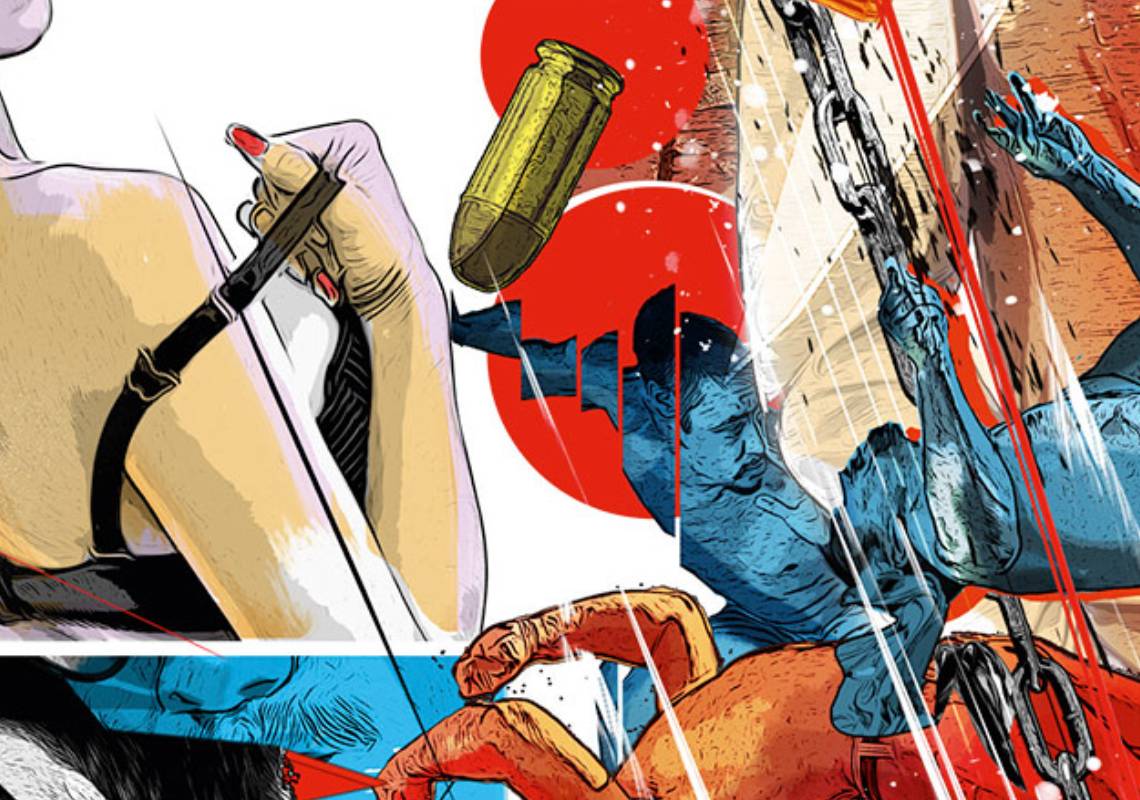If Mean Streets is still your favorite Martin Scorsese movie of all time, then you’ll probably love Street Mobster. The 1972 debut from Kinji Fukasaku presents Yakuza violence so fluid and relentless, you wind up as far from desensitized as possible. On the contrary, Street Mobster wraps you up quite nicely in the delirium and savagery of its characters.
It starts out bleak, it gets about as bloody as any cinematic Yakuza crime story made up to that point, and it ends on a devastating, memorable low note. Fukasaku would become more skilled at telling such stories later on, particularly with stuff like Battle Royale (his final film before passing away in 2003). While Street Mobster feels a little uneven at times, or at least senseless, it is nonetheless an impressive debut by a director, who only got better as time went on.
Bunta Sugawara plays a young man named Okita, recently released from prison. He is essentially a walking collection of very, very sad background points. He doesn’t have a dad. He comes from a home that would have to find the long-gone missing pieces to even qualify for broken. His mother drowned. He went from reform school to a life of rape, violence, and other things I guess were inevitable. Okita is not particularly likable, although Sugawara plays with an admittedly significant amount of blunt charisma. If nothing else, Street Mobster does not even suggest sympathy for Okita, nor it does it expect us to believe he deserves any sort of opportunity for redemption. Of course, he certainly never receives one. Street Mobster is steeped in Okita’s old ways, and we can guess how things are going to end, long before the film actually concludes.
So why bother? That’s a fair question. Street Mobster might be bleak, ugly even, but it’s energy is unlike anything you have ever seen from a crime drama made in this period. It is extraordinarily contemporary in several key ways. That doesn’t make the movie good, but it cannot be denied that Street Mobster is stacked with good performances. Beyond Sugawara in a role that genuinely stays with you, we also have Noboru Ando, Mayumi Nagisa, and several others. Fukasaku demands intensity from his actors here. He then matches that intensity in every aspect of the film’s style and production values. Street Mobster intense stuff. At 92 minutes, it almost feels like someone has worked you over a little, by the time you’re breathlessly hurled through the movie’s brilliant climax.
At the same time, Street Mobster isn’t for everyone. It doesn’t glamorize its characters or setting, but it certainly wants you to get swept up in the madness of its energy and performances. There isn’t really anything wrong with that, but it may not be your thing. To be sure, casualness with which Okita faces his crimes is chilling, which isn’t necessarily what the film is going for. Fukasaku would go on to appreciate subtlety later (not with Battle Royale, obviously), but I don’t think that’s the case here. Street Mobster actually feels like something from the streets. There is something about a film with that sort of atmosphere that you sometimes can’t ignore.
THE FILM: 7/10
THE EXTRAS: 8/10
THE DISC: 9/10
Review copy provided
Some of the coverage you find on Cultured Vultures contains affiliate links, which provide us with small commissions based on purchases made from visiting our site. We cover gaming news, movie reviews, wrestling and much more.



